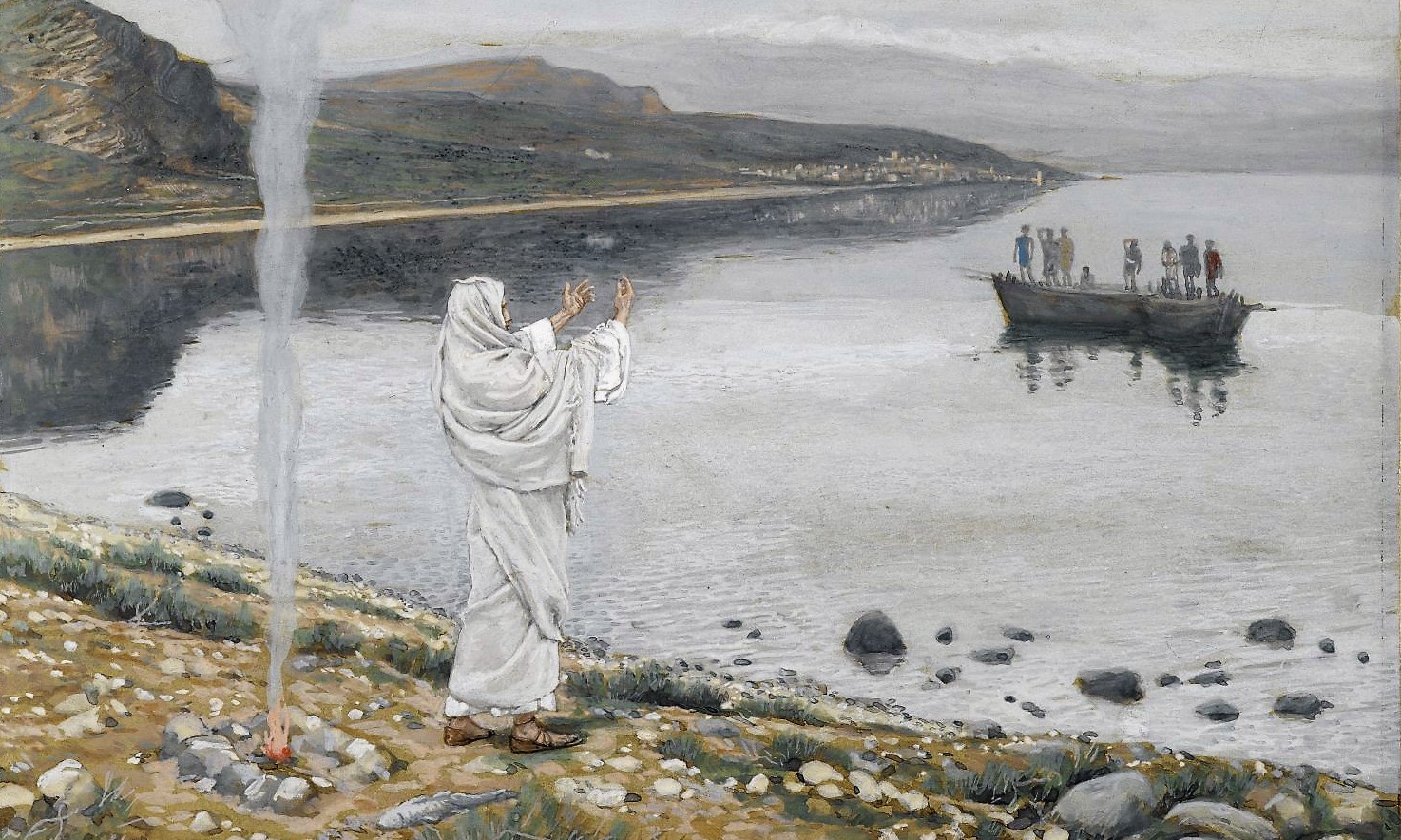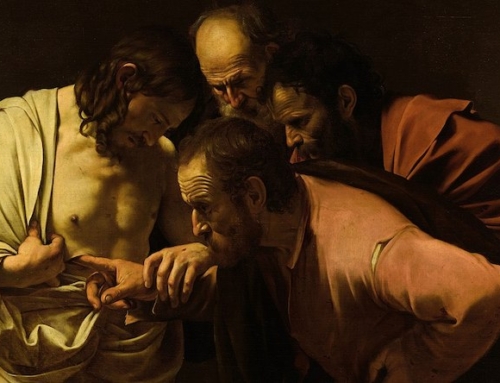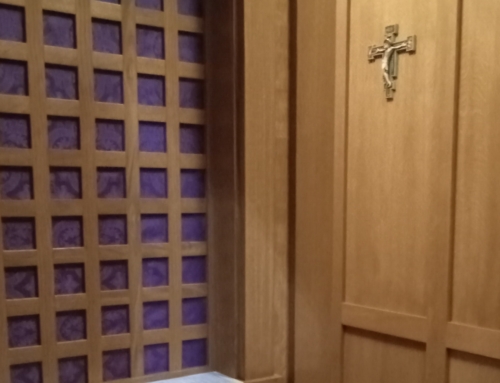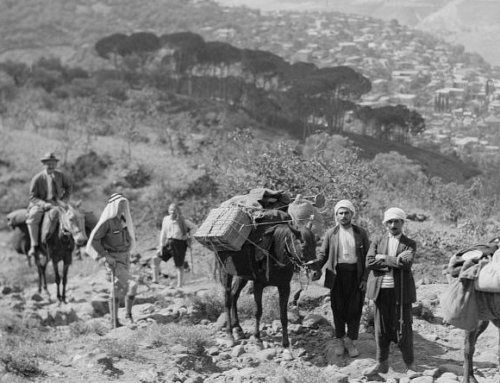“Come, have breakfast.” (John 21:12)
How did Peter react when he heard this delightful invitation from Jesus? The invitation is so human; starting the day with a warm bowl of oatmeal is a delight, but fish and loaves with Jesus is even better. Eating breakfast, the resurrected Lord shows His full humanity. And yet the meal also shows Him to be fully divine: “none of the disciples dared to ask him, ‘Who are you?’ because they realized it was the Lord” (John 21:12). Where did these coals, fish, and loaves come from? Perhaps He created them from nothing, or at least made them from the sand, surpassing even His miraculous multiplication of the loaves.
When John alerted Peter to Jesus’ presence, before the mysterious breakfast appeared, Peter threw himself into the sea, seeking the Lord. In his eagerness to reach Jesus, Peter could not wait for the boat’s short return. Soon on shore, he found Jesus and breakfast. But he also found the burning coals.
With a pang, he must have shrunk from these coals. It was not long since that cold, dark, despairing night when he had tried to find some warmth from another charcoal fire, but had fled frozen with shame after denying his Lord (John 18:18). Jesus’ loving offer of breakfast cooked on coals drew Peter close, but was like coals heaped upon his remorseful head: “If your enemy is hungry, give him bread to eat; and if he is thirsty, give him water to drink; for you will heap coals of fire on his head” (Prov 25:21–22).
But Jesus’ coals are not like those that Peter had used to warm himself before. Those had been kindled to comfort the guards complicit in condemning the Lord. Jesus’ cooking coals, by contrast, were ignited by the fire of divine charity. Heaped on the head of a sinner like Peter, these coals serve not to exert a painful revenge, but to kindle in him the same blazing divine love.
After breakfast, Jesus’ questioning served to fan the flame:
“Simon, son of John, do you love me more than these?” He said to him, “Yes, Lord, you know that I love you.” He said to him, “Feed my lambs.” He then said to him a second time, “Simon, son of John, do you love me?” He said to him, “Yes, Lord, you know that I love you.” He said to him, “Tend my sheep.” He said to him the third time, “Simon, son of John, do you love me?” Peter was distressed that he had said to him a third time, “Do you love me?” and he said to him, “Lord, you know everything; you know that I love you.” [Jesus] said to him, “Feed my sheep.” (John 21:15–17)
Through His Church founded upon Peter, Jesus continues to feed us sinners, not merely with an earthly breakfast, but with the bread come down from heaven, His own body and blood. May we too be set ablaze by this sacrament of God’s love.
✠
Image: James Tissot, Christ Appears on the Shore of Lake Tiberias







